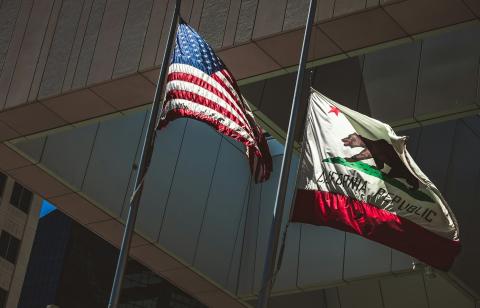Photo Credit: Craig Marolf on Unsplash
On April 1, 2014, IVN was the first to cover a campaign that warned California independent voters not to be fooled when they registered to vote. But today, hundreds of thousands of voters are still registered with the American Independent Party (AIP) by mistake.
Unfortunately, this can have a detrimental impact on these voters' right to a meaningful vote in presidential elections -- as most of them are left without a choice in presidential primaries.
The campaign that first brought this to IVN's attention, called Don't Be AIPrl_Fooled, provided voter data that proved that nearly all of AIP's members did not know they registered with a party with strong ideological roots.
AIP was founded in 1967 to get Alabama Governor George Wallace elected president. Wallace ran on a pro-segregationist platform. To this day, the American Independent Party's platform is considered ultra-conservative.
Over 130,000 voters registered with AIP in 2014 were Latino, Black, or Asian, over 60,000 were foreign born, and over a third were under the age of 35 -- social demographics that are unlikely to support far right policies.
Don't Be AIPrl_Fooled also looked at the California results of the 2012 presidential election. Presidential candidates tend to garner more votes than their party's turnout. This didn't happen with the AIP nominee.
For example, Democratic turnout in 2012 was nearly 5.88 million. Then Democratic President Barack Obama received more than 7.85 million votes in the general election. This exceeded party turnout by 34%.
Republican Mitt Romney, Libertarian Gary Johnson, Green Party candidate Dr. Jill Stein, and Peace and Freedom candidate Roseanne Barr all garnered an excess of their party's turnout.
American Independent Party nominee Thomas Hoefling received over 38,000 votes, but AIP turnout was 314,000.
The claims about AIP registration were further substantiated by an LA Times investigation in 2016. The paper conducted a survey among AIP members which found that nearly "three in four people did not realize they had joined the party."
The investigation also found that nearly three-quarters of these voters identify as unaffiliated of any party and many of the people talked to said they were drawn to the "independent" label.
Today, the number of voters registered with AIP has grown to more than 830,000 voters. By the next presidential election cycle, this number could be close to a million.
Under California's nonpartisan top-two primary, this does not restrict these voters' rights to fully participate in state, legislative, and US House and Senate elections. All voters and candidates participate on a single primary ballot.
But the state still uses a semi-closed presidential primary system. This gives political parties the power to determine who is allowed to vote in their primaries. Some allow No Party Preference voters. Some don't.
But registered party members can only receive their own party's ballot. This includes the American Independent Party -- which only had one candidate on the primary ballot in 2024.
More than 830,000 voters in California had no other options in the March 5 presidential primary. They were stuck with the AIP ballot and thus were denied the right to vote all because they registered with the wrong party.
